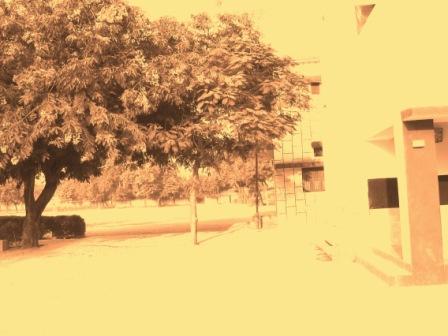Utha kar kyun na pheykein saari chizein;
Faqat kamron mei tehla kyun karein hum.
- Jaun Elia.
All these things - why not seize and throw?
In these rooms - why continue to roam?
[translated by Siyaah]
[Haider Iqbal is among the few who have sung Jaul Elia well, as in the above]
This is an example of how Jaun Elia’s sher can transcend multiple levels in an interconnected manner. I have often myself been mystified why I like some of his sher so much - why they affect one so much.
Here’s what happens:
At one level the sher is excellent in itself at what it is saying literally. A feeling - of desperation, angst, disturbance, or whatever you feel on hearing this situation that is described in this scenario. But this feeling is also a connection to a deeper level. And we know Elia is deep - deep in experiencing life, in reflecting on it (his prose, as others have pointed out is one way to immerse in the depth and range of his thinking). So the question is - what is at a deeper level connected to this feeling? This scenario is but a reflection of what a person like him may feel, and what may make him feel that way. This is the realm where a person with some depth will relate to the sher at a whole different level but may not even be able to or may not bother to explain that.
What would make a person such as Jaun Elia roam about from room to room? And ask why don’t I just throw everything around? What would such a person be feeling about life? What would life mean to him or her to provoke this feeling and this metaphor. For yes, the scenario is also a metaphor. Roaming around in life from one life space or life experience or setting to another - how pointless is that to someone who is now transcending that... and the natural question thus would be - coming naturally from that depth - why not simply give up on all these settings and surroundings - not passively, but actively. To do something to destroy them all.
For the apparently casual use of a simple word - pheykein, to throw, is at one level an expression of rage; but it is also to throw away as in give up on. How casually this is hidden away in the easy language - he often so easily hides away multiple shades of meaning, to the point that they may strike the sensibility of some of us but we don’t even know why - it’s almost a subconscious connection that he is able to evoke sometimes to different shades of meaning. To throw is thus to throw away. Or if we put the “throw in rage” meaning and “throw away” meaning together in one: To destroy all such meaningless relationships that keep us bounded - as if in a room - and we keep walking from one to another, only to be bounded again. There is no escape. Unless we can destroy this illusion that by moving from one to another - one place on this earth, one relationship, one job, one anything, to another - anything meaningful can be gained. It can’t be. You have to destroy all this that surrounds you. Only then will you escape this restless state. Only then you will find peace. Not in another room. But outside all possible metaphorical rooms. Outside. Away. Beyond all that is this world.
It takes courage to leave all this hanging in the sher, say it this way - as it came to him and say no more, to be true to the state of mind to the feeling and leave it there, as an artist and add nothing more, and believe as an artist the art is done. Courage for it to not be fully deciphered by most. But as he says in another sher “hum to khud se kalaam kar rahe hain”. Only one who doesn’t give much of a damn about anything can do it this way - true only to the truth of the state, the feeling, the words and metaphor as they came to him, and leave it there.




No comments:
Post a Comment